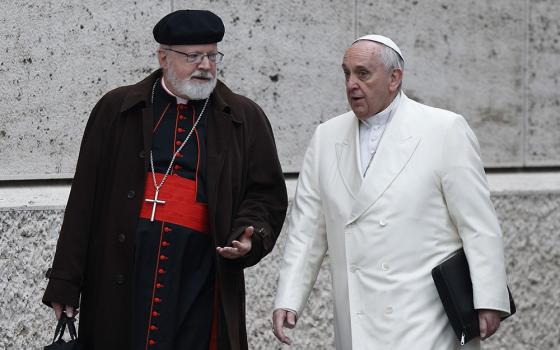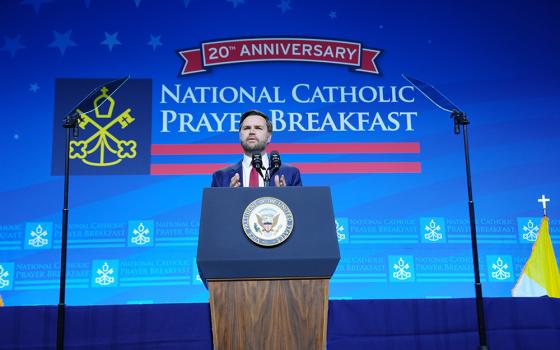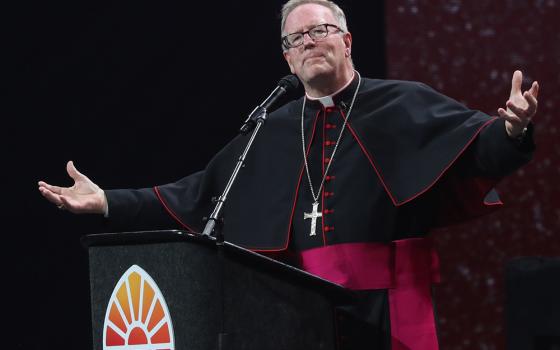
Cardinal Rainer Maria Woelki of Cologne, Germany, in 2018 (CNS/KNA/Julia Steinbrecht)
Cologne Cardinal Rainer Woelki announced Dec. 11 that he has asked Pope Francis to study allegations against him of a cover-up of sexual abuse.
"In order to clear up the canonical accusations against me, I am asking the Holy Father for an examination in this issue," Woelki announced. "The fact remains: Failures in dealing with sexualized violence must be laid bare, independent of whom they are made against. This also includes me."
Woelki's move follows on reports alleging that in 2015, the cardinal did not, as stipulated by canon law, report to Rome about a serious case of sexual abuse that had taken place decades before. In addition, Woelki did not undertake a preliminary inquiry into the case even though he knew about it from personnel files.
The case concerns a priest with whom the young Woelki gained his first experience of pastoral care when he was a deacon. The priest was also invited to Rome in 2012 when Woelki became cardinal.
The archdiocese knew of the allegations against the priest before Woelki became Cologne's archbishop in 2014. The archdiocese explained that in 2015, due to his poor state of health, the priest "in no way" could testify about the accusations. The priest had experienced a second stroke and had advancing dementia so that a personal confrontation was not possible.
Advertisement
In addition, the sexual abuse victim had informed the archdiocese that "he saw himself in no condition to comment further about the issue." As a result, there had been neither a preliminary examination nor a report filed with the Vatican's Congregation for the Doctrine of the Faith.
Several canon law experts have contradicted this argumentation. Even if the accused priest — who died in 2017 — could not be questioned, they said, people around him should at least have been questioned. In any event, the Vatican should have been informed. Rome then would have had to decide on any canonical criminal proceedings.
According to information obtained by Germany's Catholic News Agency KNA, canon law experts in the Vatican regard the situation less stringently. Woelki could have reported the case to Rome in 2015, but was not absolutely required to do so. It was only after the more stringent rules were introduced in 2019 that he would have been obliged to do so.
Woelki has become the second top church official in Germany to request Vatican help over cover-up allegations recently, after Hamburg Archbishop Stefan Hesse in November. Hesse faces cover-up allegations for his time in Cologne, starting in 2006 as chief of personnel and later as vicar general.





